Follow the Leaders
No Matter Our Mission, We’re All Like-Minded Leaders
Virginia Council of CEOs members represent a wide range of industries and experiences. Whether the organizations they lead are driven by profit, or mission, or both, the CEO’s job is much the same. No matter their mission, whether it be to sell lots of products or support matters of the heart, they all agree on one point: it’s lonely at the top.
“I can’t turn to my employees with a business problem, or to my husband, because he’s in a completely different profession,” says Louise Bagwell-Robinson. She’s the founder and CEO of Millwood School – a 26-year-old nonprofit she started to fill an education void in her local community.
Bagwell-Robinson became a VACEOs member in 2011 after attending a Quarterly Luncheon as a guest. She admits she was a little hesitant to join the organization at first.
“At first, I had some trepidation about joining, because I didn’t know if I had anything to share, she explains. “I didn’t think I knew a lot about business, and I didn’t think I’d have much to offer, but it turns out I really do know a lot, and now I know even more because I’m running a very large organization.”
Her experience teaching at various schools, including the University of Pittsburgh, fueled her desire to start a non-parochial private school for her kindergartner and, later, for her toddler. As an educator and a mom, she knew exactly what she wanted.
“As a mom who happened to be an educator with lots of experience from coast to coast, I wanted three things,” says Bagwell-Robinson. “One, I wanted a place that would challenge the intellect of every student in the school; secondly, I wanted a place that was safe, both literally and figuratively – meaning, I wanted kids to be free to take an intellectual risk, especially girls in math and science; and lastly – and this was very important to me as a mom – I wanted my girls to be in a place where there was an adult who would know if their heart was hurting.”
Millwood School began in 1989 with 20 students, three construction trailers and a 2.5-acre plot of land in the Brandermill subdivision of Midlothian, Virginia. Four years later, the school moved to a different location, then quickly outgrew it. Fast-forward to 2015, as Millwood celebrates its 27th anniversary. The school currently serves 220 students, employs 45 people and sits on 79 acres. The buildings on the property are valued at approximately $7 million, Bagwell-Robinson manages an annual budget of around $3 million, and in 2014 the Richmond Magazine named Millwood Best in Education.
NONPROFIT OR NOT, WE’RE ALL LIKE-MINDED LEADERS
For Bagwell-Robinson, the most valuable benefit of membership in the VA Council of CEOs is the shared experience. “All businesses, whether for profit or not, deal with pretty much the same issues, like budgets, HR concerns, marketing, benefits, taxes,” she says. “VACEOs is so valuable because it’s almost impossible to know all the things there are to know about starting and operating a business. The Roundtable format is a safe environment where you can share your experiences and learn from other people’s mistakes or successes. It’s an extremely helpful process, and it has helped me through business, personal, and even family issues.”
Jennifer Boyden, CEO of Heart Havens, agrees. “There are many things that happen in the role of a CEO. It’s comforting to be around like-minded people and to be able to grow through that experience.”
Heart Havens offers support services and builds homes and communities for adults with intellectual disabilities. The nonprofit began in 1993 as the result of a parent of a child with intellectual disabilities asking her pastor, “Where will my child live when I am gone?” and has blossomed into a non-denominational 501(c)(3) nonprofit that manages 11 homes across the state. The organization employs approximately 110 today.
“We empower adults with intellectual and developmental disabilities to live and thrive in their community by providing a safe, nurturing environment at home and through the support our staff provides,” says Boyden. “Our ultimate goal is to empower the people we support. We want to give them the life they want to have, to help them develop the skills they need to in order to be successful.”
Although relatively new to VACEOs, Boyden has already benefited from the experience. “I have found that my Roundtable has given me the ability to talk about a challenging decision I’ve had to make,” she explains. “I was able to hear other experiences and process my challenge, so that by the end, I was well on the path to developing a plan for resolution. In broader terms, their support has given me the confidence to be a better leader. This means my staff, in turn, gains strength, as it all comes back to the leader. By fortifying those walls, you build strength in the organization.”
MISSION ACCOMPLISHED, BUT STILL MORE TO DO
What’s next for these two dynamic CEOs? Bagwell-Robinson reports that her goals are to build out all of the 79 acres her school currently occupies and max out her Junior Kindergarten through 12th-grade enrollment to 600 students.
“It’s an exciting time for Millwood School,” she says. “We just graduated our third and largest 12th-grade class. Most of the students are going to prestigious Virginia colleges. One student will be attending Stanford. In the near future, we will launch an entrepreneurship program, which I’m really excited about. My goal is to polish this product, if you will, day after day, to make sure it is the best it can be. I’m very proud of what an army of people has done here, and I want to make sure it continues on forever. I feel I was brought to Virginia to create Millwood School. I absolutely love coming to work. It feels so good to do what I’m meant to be doing.”
Jennifer Boyden of Heart Havens is excited about her plans to integrate technology into the lives of the organization’s residents. Her plans include continued expansion, which she feels she’s ready to tackle with confidence.
“Our goal is to fundraise and then purchase and rehab or build an apartment complex in Charlottesville,” says Boyden. “The facility will be very integrated into the community, and it will have technology in place to help folks live more independently. This new venture will truly allow people to experience their own abilities and will do the same for the people around them. These new endeavors are nerve-wracking, and I’m sure my Roundtable will be there to help me maintain my footing and confidence while we head in this new direction.”
Imagine if you had a network of resources to help you navigate through the complex challenges you face each day as a leader. A group of like-minded people to help guide you through your questions about finances, employee concerns or marketing issues. You do in the Virginia Council of CEOs. Learn more here.
Q&A With VACEOs Chairman David Ingram, of Capital TechSearch
Be innovative and hard working.
Be creative.
Love to learn.
In a sense, be David Ingram.
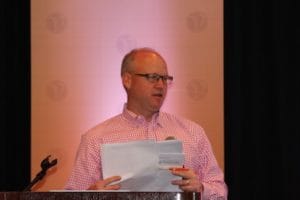 Ingram is an entrepreneur, author, speaker, community leader and family man. And in many ways, he exemplifies a typical VACEOs member.
Ingram is an entrepreneur, author, speaker, community leader and family man. And in many ways, he exemplifies a typical VACEOs member.
More specifically, he’s the author of 15 Bedtime Stories that Keep Entrepreneurs Awake at Night (which maintained a spot on the Amazon Top 100 Business Books list for a respectable stretch) and a long-time member of the Council (since 2006).
Backed by his invaluable business partners Kati Elder-Burak and Barthe van Doorn, Ingram reports that Capital TechSearch, repeatedly shatters industry standards for excellence in the IT search and placement industry, converting 86 percent of its placements to full-time positions – all while upping its overall placement count by more than 30 percent each year. The firm has made the Inc. 5000 Fastest-Growing Companies list three times.
We sat down with Ingram recently to find out what’s changed since his book was published, why he volunteered to be the Council Chairman, and – after all this time – what, if any, new nightmares keep him awake. Here’s what he had to say.
Q: You wrote 15 Bedtime Stories that Keep Entrepreneurs Awake at Night back in 2009. The book documents the lessons you learned while managing your startup through tough economic times to Inc. 5000 status. How has your business changed since your book was published?
A: For one, the IT placement market has completely changed. Kati, Barthe and I began to see new relationships placed between our clients and ourselves. Ultimately, in many cases, we felt like this began to commoditize the candidate, and that changed our fundamental relationship between how we placed people and how we worked with our clients. We realized that approach is not for us. We are a relationship firm. Companies hire us when they want to build an IT team – generally for the long term. We don’t supply the transient workers.
We recruit individuals who have the skills our clients are looking for and who have experience using the tools and skills that are relevant to be successful. We also try to make sure the recruit is in the right time and place in their career to take on a new role when they land. That differentiates us from providing a service that searches a résumé for word the word “Java,” for example. And that’s why people keep coming back to us.
Q: In the beginning of the book, you describe yourself as “as starter, not a maintainer.” You say you like to, “…swoop in, fix, reorient, and then swoop back out.” Would you still describe yourself that way today?
A: I absolutely do still feel like a starter. I’m just in the same business! The market is different, and my role within the company is different as we’ve adjusted to our clients’ needs. It’s an exciting time for me now, and I’m enjoying the new challenges.
Q: You mentioned repeatedly in your book how much you’ve learned from your business advisors and confidants. How has the VACEOs helped you become the successful business owner you are today?
A: There is no way to place a number on the value I’ve received from my membership in the VACEOs. I can’t count that high. What I find valuable is the unexpected help I’ve received for me as the person, not the CEO. In my mind, that is what the Council is about. We all have the same cash flow issues, the same HR issues – but who’s there to help us with the heart-wrenching decisions we have about where we’re going to cut costs and how we’re going to expand? When you’re running a small or medium-sized business, there’s no avoiding responsibility for making tough decisions. That’s a really tough place to live. It’s nice to have a group of people to help you with that.
Q: You’ve been a member of the Council since 2006 and have served as Membership Chair, Retreat Chair, Board member, Vice Chairman and now Chairman. Why so active in the VACEOs community?
A: I view the Council as a really important piece of the Richmond business ecosystem. If, by connection, I can make it better today than it was before I started, then I’m making the Richmond community better. I really view the work as me helping to make other local business leaders successful.
Q: You’re a popular speaker, a successful entrepreneur and a devoted family man. What’s next? Is there a second book on the way?
A: How to be ready financially in the next three years when my twin boys start college is heavy on my mind these days! But, seriously, I feel like I’ve spent the past 10 years raising kids, and I’m in a different mode now – a business growth and expansion/“set new goals” time in my life. We’re expanding as a company, we’re getting recognized for the quality of services we provide, and I definitely believe we’re going to be the last man standing in our line of work because we solve the hard problems and stay in the game even when things are complicated. Great things are on the horizon for us in the next 24 months.
Q: Last question. What, if any, “nightmares” keep you up these days?
A: What keeps me up at night are things that are primarily out of my control – like, for example, when health care laws change. That has a dramatic effect on our profitability.
What’s most important to me is taking care of my family and making sure I enable my employees to be all they can be – enabling them to make their personal and professional goals. As long as I’m doing that, I’ll have a good night’s rest.
Becoming Unboxed Technology
Walk into the workspace, and the walls are covered with varying sizes and lengths of quotes. Collectively, it reads like an inspirational sounding board: “The good life is a process,” “Imagination will take you everywhere,” and even “Just keep swimming.”
The proverbial Inspirational Wall is fitting. In essence, these credos, carefully selected by each Unboxed Technology employee, tell the story of the vision, struggle and character of this young company.
Turning just six years old in 2015, Unboxed Technology has already found itself on the Richmond BizSense RVA 25 list of fastest-growing companies in the region. (Unboxed’s 95 percent growth over the years 2011 to 2013 earned it the number 15 spot on the high-profile list.) Today the company’s client list reads like Who’s Who of local and big brands, including Comcast, Allianz, McKesson, Samsung, 24 Hour Fitness, nTelos and Owens & Minor.
Defining the Unboxed Technology product isn’t so easy, until you get to the heart of it. The company creates the ultimate learning and teaching environment – one where creative content rules and a new common interactive platform rocks. And it wouldn’t be Unboxed unless it was mobile.
More specifically, Unboxed Technology creates everything from interactive training sessions to mobile marketing apps, analytics engines to animated videos, user interfaces to face-to-face instruction. And production value is extremely high: This isn’t PowerPoint on steroids.
Think Universal Studio video production quality while teaching your employees the correct way to greet customers. Or a colorful animated Q&A session for your salesperson’s tablet – one that narrows down a complex decision for his customer. Or an application that becomes the ultimate sales assistant, intuitively ordering samples for a prospect.
The goal is educate and empower and reduce confusion – to motivate your people and your customers to make the best choices.
This is the story of Unboxed Technology. And almost immediately at the beginning of our conversation, co-founder Brian Leach says, “The story of this company isn’t a ‘me’ story – it’s a team story.”
BECOMING UNBOXED
Says Leach, “If you ask me what drives Unboxed, first of all, it’s the relationships we have with our clients, and secondly, the team here at Unboxed. We have a wonderful team. Then, it’s our products. I believe our products are very different. But we wouldn’t have them if we didn’t have great clients who allow us to innovative and produce different and captivating content.”
Inspiration for Unboxed Technology was found in the corporate halls of the now-defunct retail giant Circuit City. It was there that Leach and co-founder Dave Romero first met. It was also where the two became friends with Unboxed Technology’s first employees, Kevin Leetham and Michael Laskaris. All were heavily engaged in unveiling a multibillion-dollar project for the national retailer: an interactive concept that would change the retail industry – and ultimately birth Unboxed.
Leach explains, “I was with Circuit City for over 20 years, and Dave (Romero) was there for over 15. We were both leading the development of a new concept called ‘The City.’ The concept had a lot to do with how employees interacted with the customer. We were doing a lot of innovation with tablet technology at the time – even before the iPad came out. We ended up building a multimillion-dollar enterprise platform for Circuit City that leveraged mobile technology, creating tools for employees to better serve the customer.”
Sixty new concept stores were formed. Write-ups on the innovative sales approach appeared in The Wall Street Journal, the Richmond Times-Dispatch and even in a Microsoft case study. But despite The City’s successes, Circuit City as a company went bankrupt. Of that time, Leach says, “We had been running really hard at something, and then it just stopped.”
“IT WAS SO CRAZY”
With the encouragement of colleagues and business mentors, Leach and Romero founded Unboxed together in 2009. They sketched out a strong business plan and almost immediately convinced Leetham and Laskaris to take a leap of faith. Six months later, the Unboxed Assistant prototype was built using Microsoft technology.
Good times, right? Not quite. Seems a little company called Apple was finally ready to launch something called the iPad, and the Unboxed prototype needed to be compatible. “We had to start over,” says Leach. “If you’re going to be in the technology space, you have to be able to adapt and change and be nimble. You have to innovate. We think back to that time now and laugh. It was so crazy.”
Within six months the company started work with nTelos Wireless and 24 Hour Fitness. Fast-forward to today, and the company has reached fastest-growing business list status, has over 50 employees and plans to add more this year.
So how DID Leach and Romero do it?
GET OVER YOURSELF AND PLAN FOR SUCCESS
When you transform an idea into a multimillion-dollar business in a matter of a few years, you learn a thing or two along the way.
First lesson: Get over yourself.
Then: Plan for success.
Next: Don’t be afraid to ask.
“Getting past the fear of personal risk is hardest part when you’re thinking of starting a new business,” says Leach. “It never goes as fast as you’d like it to. You have to plan for success. You have to have confidence that you can get through the hard times. When you do that, it’s amazing what you can do. We laugh about it now – the personal sacrifices Dave and I and our families made at the beginning, wondering how we would we get through it.”
If you don’t plan for success, then it won’t happen. Smart businesspeople have to be willing to take on logical bets. Says Leach, “We tend to hold on too much as small business owners. Whether it’s investing in people or technology, be willing to knock down those barriers and not let them be obstacles.”
Leach also admits that finding business resources and asking questions is OK. “I learned a lot of life lessons during the early stages,” he explains. “I learned that you have to overcome fears and not be afraid to ask. There are so many great business resources available to you if you open your eyes. Resources I found within the membership of Virginia Council of CEOs are priceless. You just have to not be afraid to ask for help and guidance.”
With growth comes growing pains, but Leach has his eye on the ball. The happiness of clients and employee comes first: “We have to resist the urge to grow too fast. What makes Unboxed so great is our relationship with our clients and the team at Unboxed who do the work. We don’t want to goof any one of those up. We don’t want our rapid growth to cause poor execution, and we don’t want to let our team down or push them to a breaking point.”
It’s clear that company culture is a big part of what makes up Unboxed (queue the mental images of the Inspirational Wall), but Unboxed is more than the creative workspaces or the comradeship found in its “interactive huddles.” Its owners are also committed to investing in their employees’ happiness and development.
PAIN POINT = FINDING TALENT. CAN YOU RELATE?
Leach says his biggest growing pain was finding the right talent to take the company from four employees to over 50 in only a few years (a common woe heard ‘round many a roundtable). As a result, his team has become extremely adept at selecting and interviewing candidates. Good thing, because Unboxed receives hundreds of applications a month over the web: 815 total last year.
Finding the right experience and skill sets for the unique company means thinking in new ways and figuring out which roles need to be physically present and which don’t. For example, leadership and product managers work best on site, while developers and content strategists can work remotely. All of them get together several times a year, and when we visited, they were preparing for the company’s first Factory Day – a day when the business closes its doors to strategize on how to improve its processes.
THE FUTURE OF UNBOXED TECHNOLOGY
Leach promises a big evolution for Unboxed in 2015 – effectively evolving from custom software company into a product company that provides services. Expect to see a new website and strategic marketing campaigns designed to increase brand awareness. And, of course, more hires. (His budget includes a healthy investment in employee development – a subject of vital importance to Leach.)
Over the next five years, he hopes to penetrate new verticals and industries. Says Leach, “We’ve learned that we can apply what we can do in healthcare, in telecommunications and in retail. We even have a client that is a local law firm. We can apply what we do to almost any industry. We think there is so much potential.”
He adds, “If you value your people and you value those business relationships, you have principles that you use to make decisions around both of those things. And we do. We put a lot of those things before ourselves. That’s how you get a great customer and employee experience. I think if we don’t lose focus, then the sky is the limit. I really do.”
Or simply stated through his personal selection on the Unboxed Inspiration Wall: “All dreams came come true if we have the courage to pursue them.” (Walt Disney)
Learn more about Unboxed Technology here.
Other posts you may like:
• VACEOs Members Make RVA and INC 5000 Lists
• Unboxed by the Numbers in 2014 (funny holiday video)
Brian Leach has been a VACEOs member since 2011. Membership of the Virginia Council of CEOs includes professionals from award-winning companies across many industries, including IT Services, Marketing & Advertising, Logistics & Transportation, Business Products & Services, Consumer Products, Human Resources, Finance, Health Services and more.
Imagine what you can achieve, surrounded by CEOs like these! Learn about VACEOs membership.
VACEOs Member Profile: Randy Sklar of Sklar Technology
“It happened kind of naturally,” says Randy Sklar, when asked if there was one pivotal moment when his father handed him the reins to the family business. “I remember it was around 2001, when the economy started to go sour and our business was really suffering. He began to look toward me for guidance. I suggested we move away from retail where the return was just too low. I began to focus on our commercial accounts and developed a new program for them that eventually brought us the cash we needed at the time. We even turned a profit that year. That was the turning point.”
Randy later got some words of wisdom from two family business owners in his Roundtable: transitioning from second-in-command to primary business owner will have its bumps. It takes courage and faith, they said, and they were ready to help guide him through the exit strategy.
Today, Sklar Technology is a multi-million dollar company in the middle of a remodel. Randy plans to add more employees to his team of 13, and the preventive maintenance program he brought to the once ailing technology company is still an important part of his business, along with a program that thwarts malware which can cripple a business in minutes.
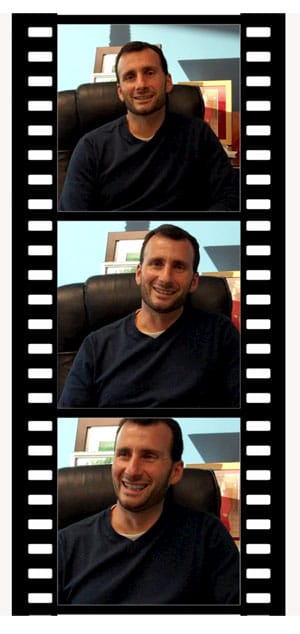
Computer Corner to Sklar Technology
Sklar Technology began under a different name. In 1982 the business was called the Computer Corner, which back then more aptly described the retail-focused computer shop. As the commercial accounts and range of services grew, a name change was required in 2007 — to the chagrin of Randy’s father. But this was yet another necessary step to capture more accounts. It was also another example of son Sklar’s growing decision making power.
The company has shaken its retail services and has evolved to offer technology management and consulting, network administration and general IT support services to large and small commercial accounts located primarily in the Richmond region.
Randy explains his services in more detail: “Most small companies don’t have internal IT department to overlook their network and give support to the system users. We’re here to be an outsourced, virtual IT person. We handle all the normal services a company requires, like security, end user support, 24/7 monitoring and automated backup/rapid recovery services.”
He adds, “We see our customer’s data as an important asset, but unfortunately business leaders are typically delegating one of the most important areas of the business to the wrong person, persons who don’t have the skill or don’t understand the importance of a security breach, for example. Our customers are those who really depend on and value their data.”
When Ransomware Attacks…
Ransomware is a class of malware that restricts access to an infected computer system. To “get your computer back” you must pay the malware creator a ransom — which typically means coughing up several hundred dollars worth of bit coins.
Sound like a movie script? It’s not. It’s real and small to mid-size businesses are an easy target, says Randy. “People think that these culprits ‘break into’ your system. That’s not true. Businesses are tricked into installing the malicious software. It can be very disruptive. We’re helping a number of local businesses deal with this problem on a regular basis.”
The malware can lock up systems or erase data. For small businesses, it could mean appointments disappear, customer’s accounts are erased, or accounting systems are corrupted.
“Our unique approach is in our proprietary programs and processes. We start with a Risk Assessment to determine what assets are critical to the business and where relevant vulnerabilities exist, then we mitigate these threats and finally we implement our programs and services to keep the data secure and highly available for the end users. The key isn’t to stop this process, security is a discipline. Education and understanding is critical from a leadership standpoint, this is a business issue not an IT issue,” explains Randy.
Clearly the family business has evolved over the last three decades. When you speak with Randy in his office, you can’t help but see pictures of his young family scattered on his desk and on each shelf. We have to ask, “Will the children take over the business?” “There’s no pressure to do that,” Randy is quick to say, but then adds with a smile, “But, they DO already have business cards.”
Seems likely that Sklar Technology, no matter who is at the helm, will always be a family business.
Virginia Council of CEOs Member Profile: Trey Hayden
Mission: CodeBlue
“It’s easy to get swayed or clouded and have your focus interrupted by things that come about when you have a business with employees, or an economy that’s not stellar at the moment — there can be a lot of distractions,” says CodeBlue Technology CEO, Trey Hayden.
He continues, “but if you keep focused on your original mission, then that tends to keep you on the path you need to stay on to be successful.”
Hayden’s focus over the last 23 years has brought him to a large, distinguished, colonial-style office space off of Monument Avenue. A location, Hayden says, central enough to adequately serve his 300 + customers. It also has brought him several honors and awards. (Most recently in 2012, CodeBlueTechnology (CBT) ranked #3 on the SMB 500 list as one of the fastest growing SMB focused IT providers in the USA, and this year, CRN Magazine will be present its Next-Gen 250 award to CBT.)
CBT could be described as a service-based company with a focus on technology. Its mission isn’t to work with the largest, but to serve the smallest. That vision drives CBT’s business philosophy, its management structure, and its hiring and training processes.
Becoming CodeBlue Technology…
Hayden grew up around family members who were farmers, contractors, painters… professionals who worked with their hands. Doers. He couldn’t ignore his genetic tendency to do the same, nor his desire to learn about business. He studied at VCU and, while there, found the ultimate path he would follow while working a part time job at a local computer company.
“I was doing clerical and gopher work for them, but there were guys building PCs in the back. That’s when my mechanical drive took over and I wanted to be a part of it.”
He continues, “I would get my work done as fast as I could so I could sit on a stool and observe as much as I could and talk to the guys and asked them questions when I felt they had enough patience to answer my questions.”
While learning about hardware and PC maintenance from the boys in the back, he was also learning about shipping and receiving, parts management, and eventually, consulting. He became the general manager of the company before he graduated from VCU in 1995.
Fast forward to 1999, he found an opportunity to greatly expand his technical knowledge through another employer. It was while working for this company that he would meet individuals who would eventually provide him with the opportunity to start CodeBlue Technology in January 2003.
Today, CodeBlue offers a slew of communication and IT technology services, including consulting, implementation, training, and maintenance.
Shop Setup to Keep the Cash Registers Ringing
Hayden explains, “CodeBlue’s niche is the small to mid-size company, those with 1 to 1000 employees, and we’ve been that way since the beginning, for 10 years now. Working with the small to medium-size business owner fits with my personality. We get opportunities to work with larger companies, but we don’t always pursue those, as they don’t fit as well with our culture.”
Hayden continues, “Our setup, processes, and systems are all geared for small to mid-size businesses. Sales conversations start with me or one other person, so out of 11 people there are only two focused in business development. Most of our competitors are more sales driven. With us, service comes first; we sell Dell, HP equipment, all the top line of gear, but where we shine is our commitment to making sure those things do what the business needs them to do. We make sure the equipment or network stays dependable, to keep the cash register ringing,” he adds.
Because his service team makes for the bulk of his employees, hiring the right service technician is key. Hayden only hires candidates with very specific qualities.
He explains, “We specifically look for that knowledgable person with great communication skills. A person can be brilliant at what they do electronically, but doesn’t enjoy interacting with customers. We need the person who enjoys the interaction, and who can break down problems or solutions simply. Someone who is able to use analogies and other types of communication skills to help that business owner understand the issue or recommendation. That positive interaction is key to what we are about.”
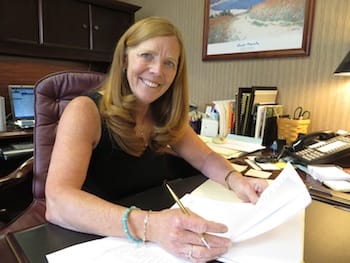

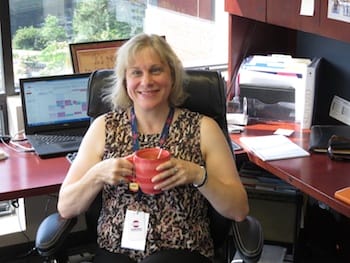
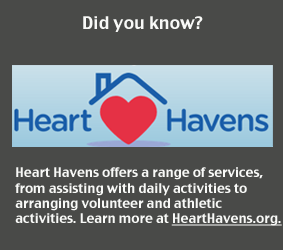
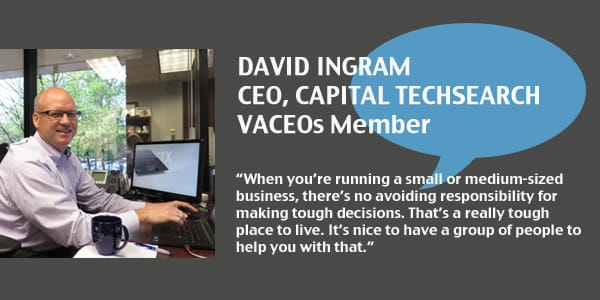
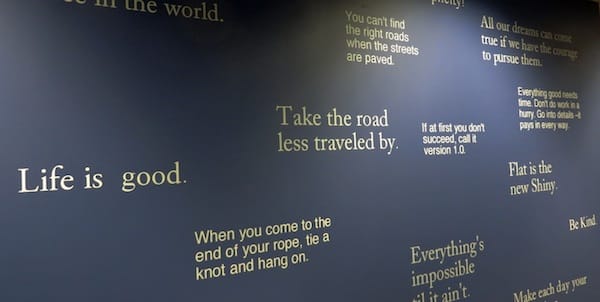
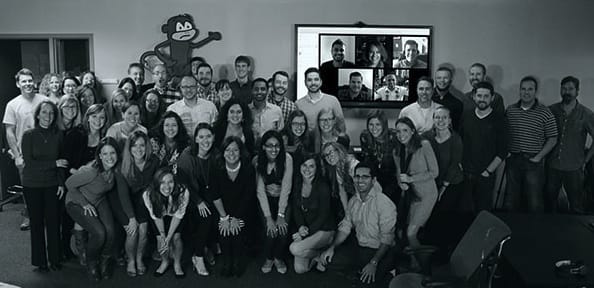
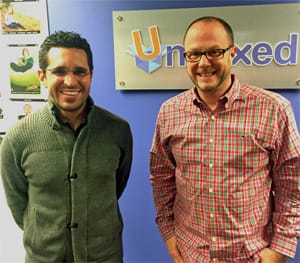
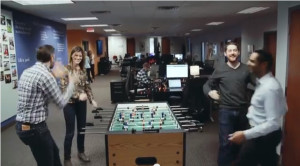

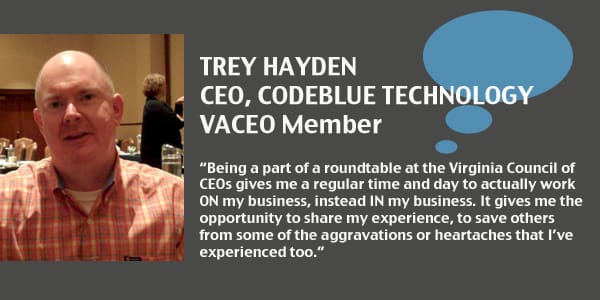
Recent Comments